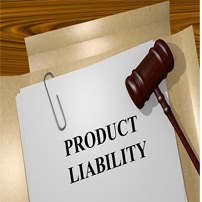Do Fast Food Wrappers Contain Harmful Chemicals?
February 21, 2017 We all know that fast food is convenient, but not so healthy. It turns out that it is not just the food that people need to worry about, but also the chemicals in the fast food wrappers. A recent study found that inside the packaging materials are high levels of fluorine. The level of fluorine discovered indicates that there are concentrated levels of fluorinated chemicals, known as PFASs (per-and polyfluoroalkyl substances).
We all know that fast food is convenient, but not so healthy. It turns out that it is not just the food that people need to worry about, but also the chemicals in the fast food wrappers. A recent study found that inside the packaging materials are high levels of fluorine. The level of fluorine discovered indicates that there are concentrated levels of fluorinated chemicals, known as PFASs (per-and polyfluoroalkyl substances).
Fluorinated chemicals are dangerous and harmful to a person’s health for many reasons. For example, scientific research has established a connection between PFASs and low birth weight, cancer, decreased fertility, thyroid disease, heart disease, kidney damage, high cholesterol and immunotoxicity. What is particularly frightening about this revelation is that the chemicals contained in the wrappers can be transferred onto food. This means that fast food consumers are ingesting these harmful chemicals.
The reason that these wrappers are used so frequently is because they are resistant to grease and water. PFASs are not only used in wrappers, but also in paperboards and bags – such as the kinds that hold fries, pastries and pizza. One of the lead researchers from the study, which was conducted by the Silent Spring Institute and published in MedPage Today, reported that PFASs are able to stay in a person’s body over time. The chemicals do not break down; instead they build up, therefore increasing their ability to damage and cause health problems as well as disease.
The study revealed that nearly one-half of wrappers and one-fifth of paperboards have fluorine inside them. These are not the only types of products that contain PFASs. Others include waterproof clothes, popcorn bags and even stain-resistant carpeting. This means that people are likely to be exposed to PFASs not only through food, but through household products as well. Because PFASs remain in the body, this is of particular concern.
Roughly 33% of American youth eat fast food daily. Because they are so young, their bodies are even more susceptible to chemicals, toxicity and the consequential health problems. Other reports have shown that as many as 80% of adults over the age of 29-years-old eat fast food monthly, with slightly less than 50% eating fast food at least once a week. For those who are 18 to 29-years-old, almost 60% of them eat fast food weekly. With numbers like these, the issue of harmful chemicals in packaging and paperboard boxes is quite alarming.
The next question is whether or not the government has been doing anything to protect Americans from chemical exposure. Some small steps have been taken, but the results of the study seem to indicate that these steps are not sufficient. There are two main types of PFASs. One type is long-chain PFASs and the other, shorter-chain PFASs. While the government disallowed the use of long-chain PFASs back in 2000, not enough research has been done on shorter-chain PFASs to determine their exact impact on health.
Although the government prohibits long-chain PFASs from being added into packaging, the chemical compounds are still present and the question is: “how?” Other countries still use long-chain PFASs and, through recycled paper, can still find its way into American-produced packaging and wrappers. The researchers in the study took note of how it is necessary to conduct research on shorter-chain PFASs to determine exactly how harmful they are.
The researchers also tried to determine whether or not the fast food companies knew that their packaging contained chemicals. Not many of the food companies responded, but when it came to the two that did, they both claimed that no fluorinated chemicals were in their packaging. One company said that they had verified this information with suppliers, and the other simply said they believed no chemicals were present. Both companies were wrong: their packaging did indeed contain fluorinated chemicals.
Whether it is true that the companies did not know their packaging products contained potentially lethal chemicals, or, even worse, if they simply were not mindful enough of insuring it was kept out, something needs to change. The government has regulations in place that must be followed in order to protect children and adults alike.
For those that want to limit their possible consumption of PFASs, the study’s researchers recommend decreasing the amount of fast food eaten. One researcher noted that when consumers remove packaging from a product it is possible to reduce the amount of fluorinated chemicals being transferred to the food, but that it is not a sure fire way of protecting oneself. The government as well as fast food companies need to protect American consumers from chemical exposure, acting on regulations that are in place and insuring that packaging is free from dangerous, unhealthy chemicals that can cause illness and even death.
Philadelphia Product Liability Lawyers at Galfand Berger, LLP Represent Victims of Harmful Products
The Philadelphia products liability attorneys at Galfand Berger are experienced in representing victims who have been injured by harmful products. We can provide excellent representation to you or your loved ones. We serve clients throughout Philadelphia, Reading and Bethlehem as well as in New Jersey. We will be happy to answer any questions and review your case for free. Please call us at 1-800-222-8792 to schedule an appointment, or complete our contact form. There is no fee unless we recover money for you.
 Google Screened
Google Screened
